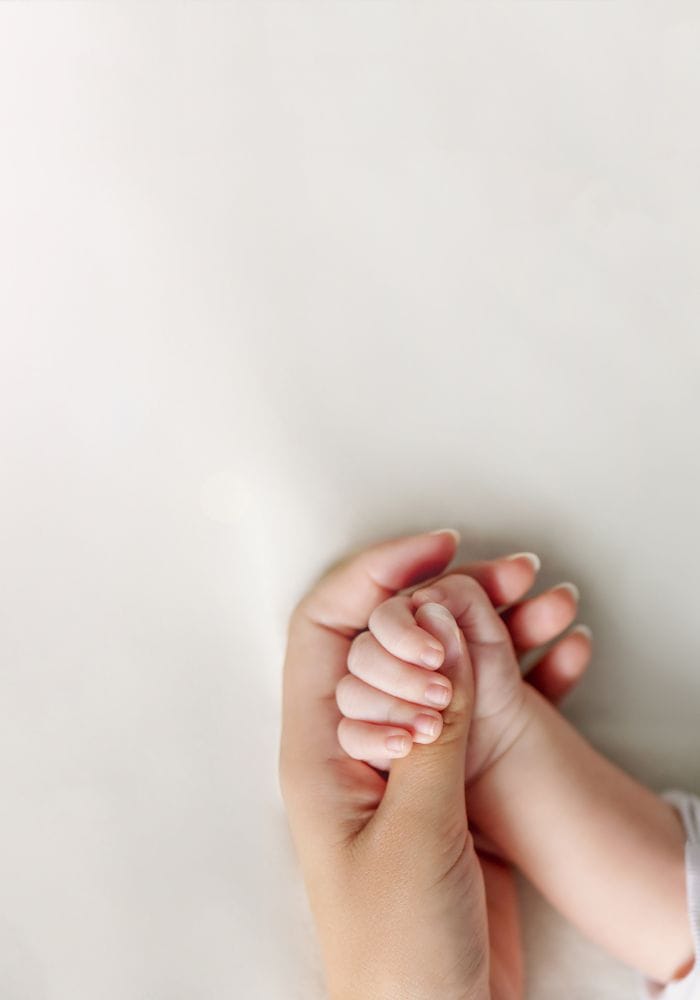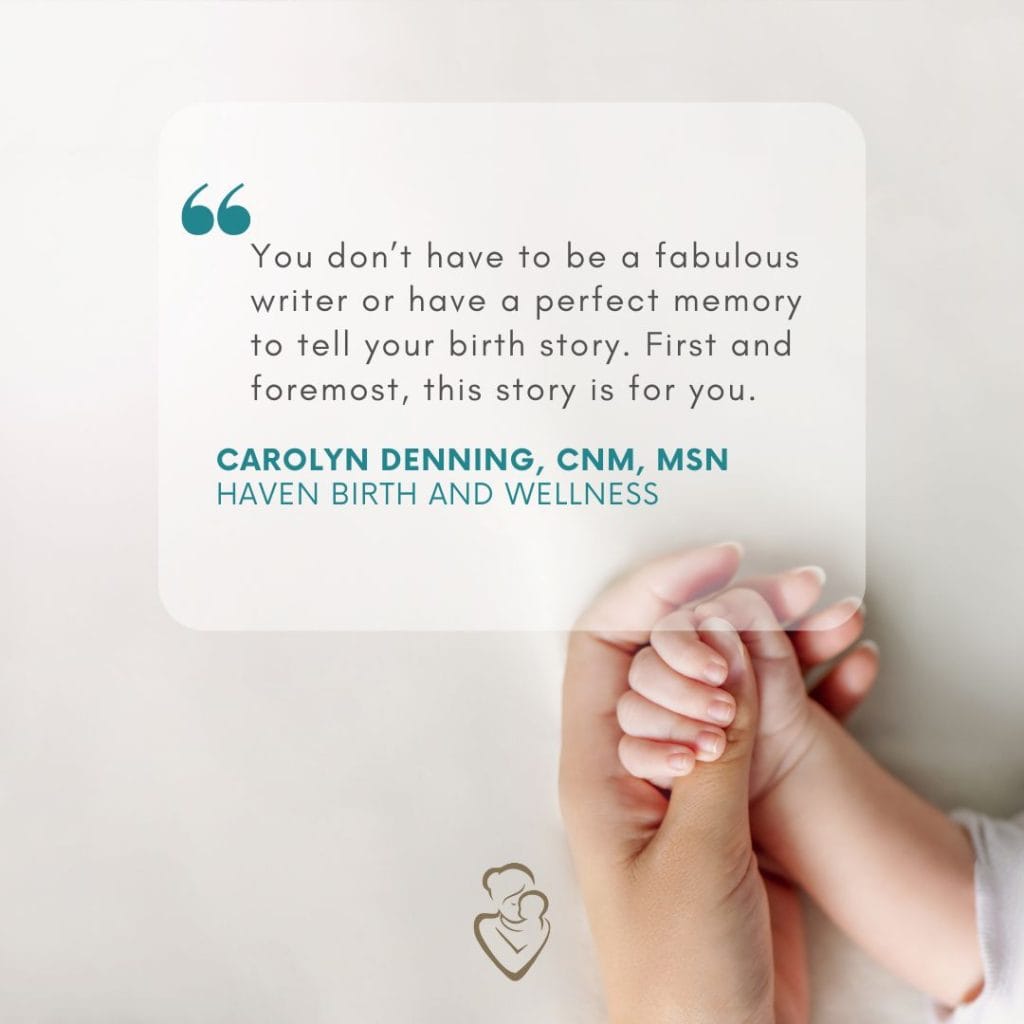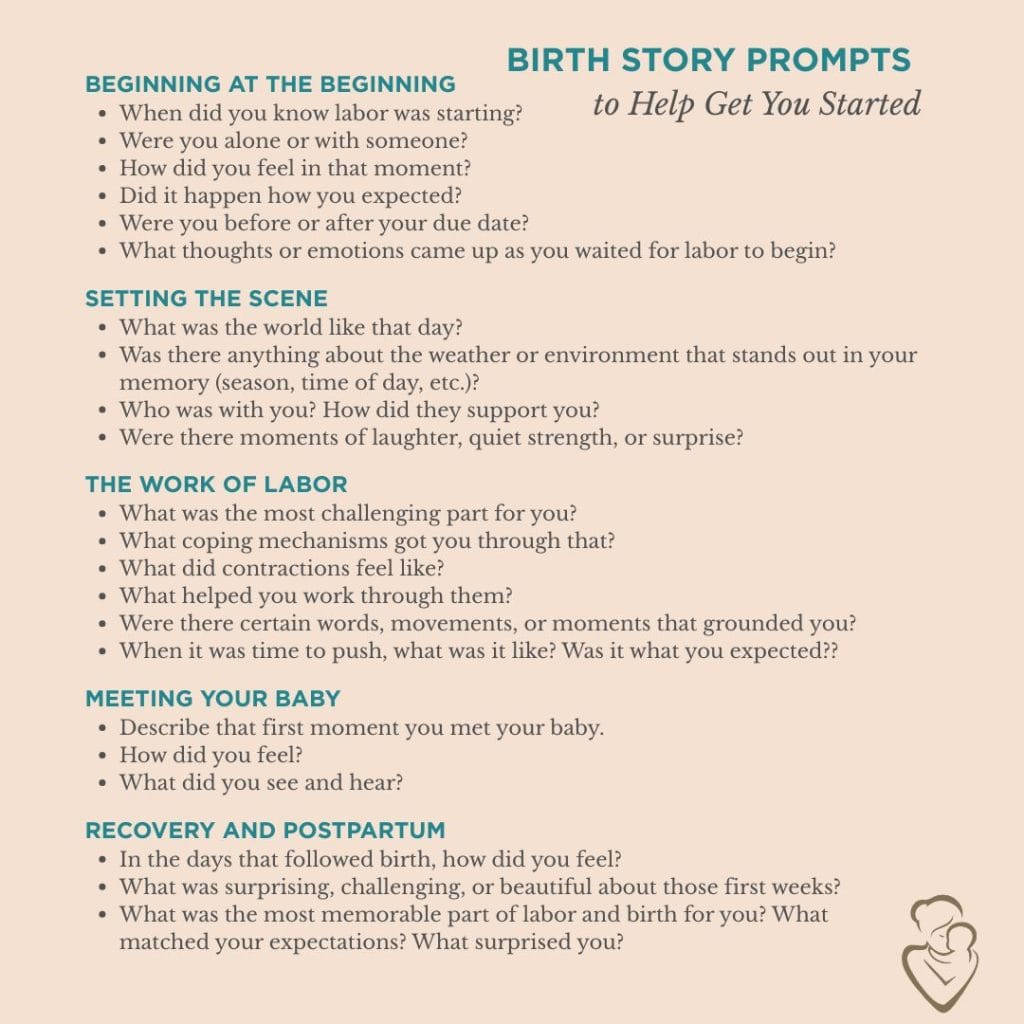

Birth stories matter — deeply.
Birth is one of the most anticipated, prepared-for moments of our lives. We spend months getting ready, doing everything we can to support a healthy pregnancy and lining up a birth team that makes us feel safe and supported.
Yet no matter how much preparation we do, there are always elements of labor and birth we can’t predict or control. This is why it matters so deeply to take time afterward to reflect and put our experiences into words.
Writing your birth story can be a powerful part of processing, healing, and honoring one of the most transformative experiences in life. Let’s talk about how that might look, where to start, and some practical points to support the process.
Why Birth Stories Matter
Every birth story is unique. And more than that, every birth story is personal.
No one else can tell your birth story the way you can — because it’s not just about what happened, but how you experienced it. What you felt. What you hoped for. How each moment progressed from your perspective. Even if the birth went differently than you imagined, there’s beauty and significance in the way your story unfolded.
During labor and birth, you have little concept of time. You’re in the now, focused on bringing your beautiful baby into this world. Telling your birth story at your own pace afterward gives you space to slow down, notice what emotions come up, and begin to understand your own experience more fully.
Often, we don’t realize just how deeply elements of a birth impacted us until we start to talk or write about them.
Find a Safe Person to Process With
Before you even start writing, I recommend finding one safe person to talk through your birth story with — someone you trust who can listen without feedback, judgment, or bias. Even if that person was in the birthing room with you, their experience was different from yours, so it’s important your voice gets to be heard on its own.
The enormous experience of birth is followed immediately by the wonderful need to bond with and care for your baby. Talking through your birth story can help process that experience so you’re inwardly released to fully embrace that sweet bonding period.
Writing Your Birth Story: When to Begin
Those first few weeks with your baby are beautiful, but they’re also exhausting. I usually encourage moms to wait at least six weeks postpartum before starting to write. Give yourself time to rest, heal, and bond with your baby.
Moms often experience a natural transition where they start to be interested in other activities again. Listen to your body and follow your instincts to know when you’re ready.
When you are, remember, you don’t have to write everything at once. You can do it in small pieces. You can pause and come back later. There’s no deadline and no rules.
Later in postpartum, if you find yourself thinking about your birth story during a quiet moment and you feel ready to begin, that’s a great time to start. And if your mind drifts or the baby needs you, just put the pen down and return when it feels right.

Writing Your Birth Story: How to Begin
You don’t have to be a fabulous writer or have a perfect memory to tell your birth story. First and foremost, this story is for you.
Journaling is a great place to start. It’s private, it’s personal, and it slows you down as you remember, process, and choose your own words. Research shows journaling even facilitates healing, which is exactly what we want for new moms.
As you mentally walk through your birth, simply write down whatever jumps out to you chronologically. If you’re anticipating writing your birth story in the future, doulas are excellent resources for recording notes or timestamps throughout the process so you have memory aids later.
If you’ve had a traumatic birth, it may take some time before you feel ready to write or talk about it. And that’s okay. You don’t need to force it. Give yourself the space you need; you can come back to your story when it isn’t quite so tender. When you’re ready, you might find it helpful to request your medical records to look through timestamps and piece together the details of what happened.
Sometimes, while telling or writing your birth story, you may notice that you feel “stuck” on a particular part or that the same thought keeps looping in your head. This can be a gentle clue that you might need some additional help with processing your experiences.
Support for Processing Your Birth Story
As midwives, we care deeply about your whole birth experience — not just physically, but emotionally too. Over the years, I’ve had many clients come back postpartum with questions, feelings, or moments from birth they wanted to unpack. That’s one of the reasons why I now offer birth processing sessions.
At Haven, we build long visits into our care model because we believe in cultivating relationships and creating space for this kind of reflection. It matters to us that you feel seen and supported not just during birth itself, but as you integrate the experiences of birth postpartum.
Sometimes, talking with a midwife is all you need. But if you find yourself continuing to struggle with certain parts of your story, or you’re noticing symptoms of postpartum depression, anxiety, or PTSD, therapy can be a fruitful next step. Here at Haven, we frequently recommend Ready Nest Counseling for caring, supportive therapy.
If you’re interested in setting up a time to process your birth story with an experienced midwife, you can contact me at ca************@***il.com.
Birth Story Prompts to Get You Started
A blank page can feel intimidating. But remember, birth stories aren’t primarily for blogs or baby books. They’re for you.
Below are a few prompts to help you get started. There’s no right or wrong here. Simply put your thoughts, feelings, and memories into words without judgment or editing. You can always refine later if you want to, but that isn’t important right now.
Beginning at the Beginning
- When did you know labor was starting?
- Were you alone or with someone?
- How did you feel in that moment?
- Did it happen how you expected?
- Were you before or after your due date?
- What thoughts or emotions came up as you waited for labor to begin?
Setting the Scene
- What was the world like that day?
- Was there anything about the weather or environment that stands out in your memory (season, time of day, etc.)?
- Who was with you? How did they support you?
- Were there moments of laughter, quiet strength, or surprise?
The Work of Labor
- What was the most challenging part for you?
- What coping mechanisms got you through that?
- What did contractions feel like?
- What helped you work through them?
- Were there certain words, movements, or moments that grounded you?
- When it was time to push, what was it like? Was it what you expected?
Meeting Your Baby
- Describe that first moment you met your baby.
- How did you feel?
- What did you see and hear?
Recovery and Postpartum
- In the days that followed birth, how did you feel?
- What was surprising, challenging, or beautiful about those first weeks?
- What was the most memorable part of labor and birth for you? What matched your expectations? What surprised you?

Your Birth Story Deserves to Be Told
Birth stories matter — including yours. No one else can tell it, and no one else’s words can quite capture it.
Whether your birth went exactly as planned or took unexpected turns, whether it was your first baby or your fifth, your experience deserves to be honored and processed.
Taking the time to write and share your birth story — even if it’s just with yourself — is a gift you give to your own healing. And we’re here to support you every step of the way.

Carolyn Denning, a midwife at Haven Birth and Wellness, grew up in the suburbs of Detroit and earned a degree in Human Physiology from Michigan State University. Her passion for supporting women through pregnancy led her to midwifery, starting as a doula while completing her nursing degree. She gained valuable experience as a Pediatric Emergency and Labor and Delivery nurse at Vanderbilt.Carolyn and her husband, Dustin, served as missionaries in South Africa, where she supported pregnant women and experienced her own transformative home birth. She is a proud mother of two girls, Levy and Josie, and enjoys traveling, exploring nature, and learning about different cultures.
